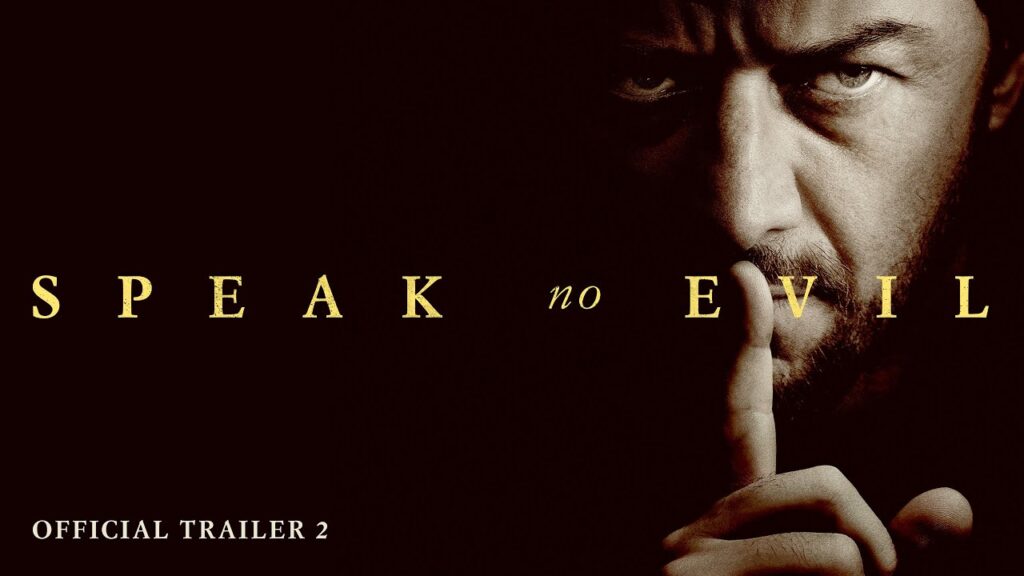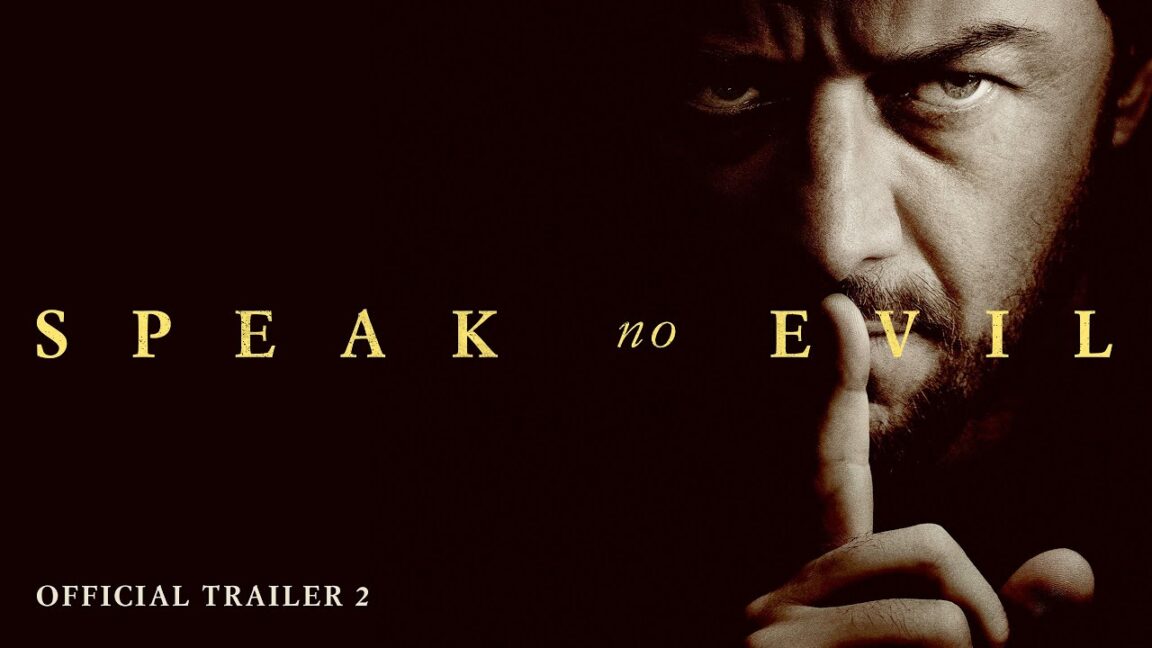
The concept of “Speak No Evil” has permeated global culture for centuries, symbolizing restraint from negative speech and promoting harmony. Originating from the ancient “Three Wise Monkeys” proverb— “See no evil, hear no evil, speak no evil”—this phrase has become a powerful metaphor for ethical behavior and social consciousness. With its growing relevance in modern media and entertainment, including its representation in films like Speak No Evil (2024), it’s clear that this simple yet profound concept continues to resonate today.
In this article, we’ll explore the deeper meaning behind “Speak No Evil,” its connection to popular culture, and why it remains relevant in contemporary discussions about morality, personal behavior, and storytelling. Whether through religious teachings, films, or social commentary, this phrase holds timeless significance, inviting us to reflect on the power of words in shaping our actions and the world around us.
The Origins and Meaning of “Speak No Evil”
A Global Proverb with Ancient Roots
The phrase “Speak No Evil” finds its origins in the ancient Japanese proverb featuring the “Three Wise Monkeys”—Mizaru (See no evil), Kikazaru (Hear no evil), and Iwazaru (Speak no evil). These three monkeys symbolize the idea of refraining from witnessing, hearing, or speaking evil in order to maintain a life of integrity and inner peace. The philosophy suggests that avoiding negative input and output, particularly through speech, can lead to moral clarity and societal harmony.
This concept has spread far beyond its origins, entering Western culture as a reminder of the moral consequences of one’s actions, particularly verbal actions. The idea is simple yet impactful: our words have immense power, and to “speak no evil” is to consciously avoid harm through speech.
Speak No Evil in Religious and Ethical Teachings
Many religious and philosophical traditions emphasize the power of words. In Christianity, for instance, the Bible frequently discusses the importance of controlling one’s tongue to avoid sin. Similarly, in Buddhism, the principle of “Right Speech” is a core component of ethical living, urging practitioners to abstain from lying, divisive speech, and harmful words. The universal message is clear—what we say matters, and speaking mindfully is a virtue.
The Psychological and Social Impact of “Speak No Evil”
From a psychological standpoint, practicing “Speak No Evil” can foster healthier relationships and mental well-being. In a world where negativity often thrives on social media and in day-to-day interactions, choosing not to engage in harmful speech promotes positive social environments. It can reduce conflict, enhance personal reputation, and create a more peaceful community. This aligns with the growing trend in mindfulness, where individuals are encouraged to be conscious of their speech and its effects on others.
“Speak No Evil” in Modern Cinema and Media
The Evolution of “Speak No Evil” in Film
The rise of “Speak No Evil” in modern cinema exemplifies the lasting influence of this concept. Films such as Speak No Evil (2024), available on platforms like Shudder, offer a contemporary take on the theme, blending horror with psychological drama. Directed by Christian Tafdrup, this Danish thriller delves into the darker side of human interaction, exploring what happens when people fail to heed the wisdom of the phrase.
Speak No Evil has garnered attention not just for its chilling narrative but also for its thought-provoking commentary on the consequences of silence in the face of evil. This speaks to a broader trend in horror cinema, where filmmakers use unsettling scenarios to challenge moral and ethical boundaries.
Why Horror Films Like Speak No Evil Resonate
Horror as a genre often serves as a reflection of societal fears and ethical dilemmas. In Speak No Evil, the protagonists’ unwillingness to confront or speak out against wrongdoing becomes a central theme, mirroring real-world situations where silence enables evil to flourish. This creates a tension that is both horrifying and intellectually engaging, drawing viewers into a narrative that questions the cost of silence and inaction.
The film’s success on platforms like Shudder and its positive reception on sites like IMDb demonstrates a growing appetite for stories that blend entertainment with moral introspection. Whether it’s through cinema, television, or literature, the concept of “Speak No Evil” remains a powerful narrative device that resonates across genres and cultures.
The Role of “Speak No Evil” in Social Media and Modern Communication
How “Speak No Evil” Applies to Digital Spaces
In the age of social media, the principle of “Speak No Evil” has taken on new importance. The digital landscape has given everyone a platform to speak, but it has also created environments where harmful speech can spread quickly. The phrase serves as a reminder to be mindful of the impact our words can have, especially in online interactions where miscommunication and negativity can easily escalate.
Promoting Positive Communication in the Digital World
Platforms like Twitter, Instagram, and Facebook often highlight the best and worst of human interaction. By adhering to the philosophy of “Speak No Evil,” users can contribute to more respectful and productive online conversations. This is particularly crucial in an era where online bullying, misinformation, and toxic discourse are prevalent issues. Advocating for positive communication aligns with broader social movements encouraging kindness, inclusivity, and mental well-being in digital spaces.
The Cultural Significance of “Speak No Evil”

Symbolism in Art and Pop Culture
Beyond cinema and social media, the symbolism of “Speak No Evil” extends into various forms of art and pop culture. The iconic image of the Three Wise Monkeys has been reproduced in countless ways, from sculptures to graphic designs. This enduring symbol reminds us of the universal truth: how we speak shapes our reality. Artists, philosophers, and even brands have leveraged this imagery to convey messages of wisdom, restraint, and ethical conduct.
Merchandising and Commercial Influence
In recent years, the phrase has become a cultural touchstone in merchandising, with the Three Wise Monkeys featured on products ranging from T-shirts to posters. Even major platforms like Amazon list these products, highlighting how this ancient proverb has become a marketable and meaningful symbol for contemporary audiences. Consumers gravitate toward this timeless wisdom, eager to display a reminder of ethical speech and behavior in their daily lives.
Conclusion
The concept of “Speak No Evil” serves as a timeless reminder of the power of words and the importance of ethical communication. From its ancient origins in the proverb of the Three Wise Monkeys to its modern-day relevance in cinema, social media, and pop culture, the phrase continues to inspire reflection on how we engage with the world around us. Whether through religious teachings, films like Speak No Evil (2024), or simply as a guiding principle for daily life, choosing to “Speak No Evil” promotes a more harmonious and compassionate society.
By applying the lessons of “Speak No Evil,” both in face-to-face interactions and digital communications, we can contribute to a world where negativity is lessened, and kindness prevails. Ultimately, speaking no evil is not just an ancient proverb; it’s a modern imperative.
FAQ
Has Michigan ever played Arkansas?
No, Michigan and Arkansas have never played each other in college football.
Has Michigan State ever beaten Michigan?
Yes, Michigan State has beaten Michigan multiple times in their longstanding rivalry, known as the “Paul Bunyan Trophy” game.
How many times has Michigan won a game?
As of now, the University of Michigan football team has won over 950 games, making it one of the winningest programs in college football history.
Has Arkansas ever been to a national championship?
Yes, Arkansas won a national championship in football in 1964.
Who is Michigan’s biggest rival?
Michigan’s biggest rival is Ohio State University, with their annual matchup often referred to as “The Game.”
Who are Michigan State’s rivals?
Michigan State’s primary rivals are the University of Michigan and Penn State University.
Did Michigan ever go undefeated?
Yes, Michigan has had several undefeated seasons, most notably in 1901 when they won their first national championship.

